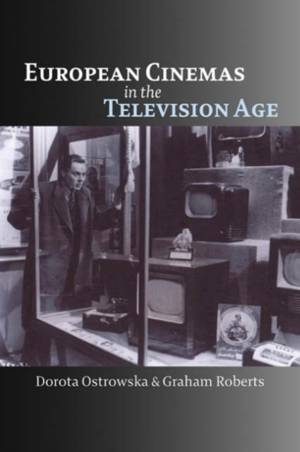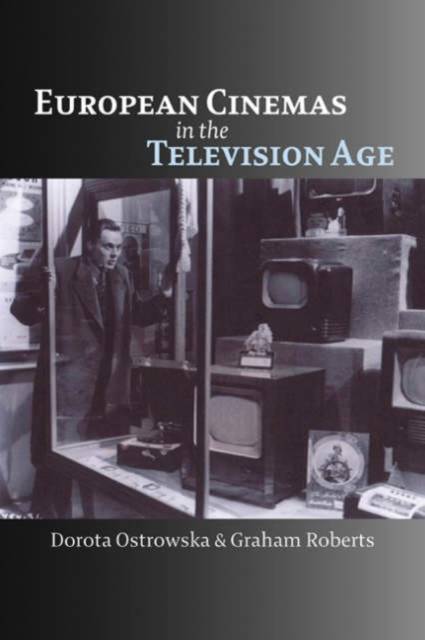
Bedankt voor het vertrouwen het afgelopen jaar! Om jou te bedanken bieden we GRATIS verzending (in België) aan op alles gedurende de hele maand januari.
- Afhalen na 1 uur in een winkel met voorraad
- In januari gratis thuislevering in België
- Ruim aanbod met 7 miljoen producten
Bedankt voor het vertrouwen het afgelopen jaar! Om jou te bedanken bieden we GRATIS verzending (in België) aan op alles gedurende de hele maand januari.
- Afhalen na 1 uur in een winkel met voorraad
- In januari gratis thuislevering in België
- Ruim aanbod met 7 miljoen producten
Zoeken
€ 67,95
+ 135 punten
Omschrijving
European Cinemas in the Television Age is a radical attempt to rethink the post-war history of European cinemas. The authors approach the subject from the perspective of television's impact on the culture of cinema's production, distribution, consumption and reception. Thus they indicate a new direction for the debate about the future of cinema in Europe. In every European country television has transformed economic, technological and aesthetic terms in which the process of cinema production had been conducted. Television's growing popularity has drastically reshaped cinema's audiences and forced governments to introduce policies to regulate the interaction between cinema and television in the changing and dynamic audio-visual environment. It is cinematic criticism, which was slowest in coming to terms with the presence of television and therefore most instrumental in perpetuating the view of cinema as an isolated object of aesthetic, critical and academic inquiry. The recognition of the impact of television upon European cinemas offers a more authentic and richer picture of cinemas in Europe, which are part of the complex audiovisual matrix including television and new media.Features*Contains detailed case studies of Britain, France, Germany, Spain, Poland, Italy and Denmark.*Includes contributions from leading scholars in the fields of cinema and television studies: Pierre Sorlin, Luisa Cignoetti, Valeria Camporesi, Gunhild Agger, Magrit Grieb, Malgorzata Radkiewicz and Will Lehman.*Will appeal to students and researchers in a wide range of fields, including cinema, television, media and communication studies.
Specificaties
Betrokkenen
- Auteur(s):
- Uitgeverij:
Inhoud
- Aantal bladzijden:
- 208
- Taal:
- Engels
Eigenschappen
- Productcode (EAN):
- 9780748623099
- Verschijningsdatum:
- 1/02/2007
- Uitvoering:
- Paperback
- Formaat:
- Trade paperback (VS)
- Afmetingen:
- 155 mm x 231 mm
- Gewicht:
- 317 g

Alleen bij Standaard Boekhandel
+ 135 punten op je klantenkaart van Standaard Boekhandel
Beoordelingen
We publiceren alleen reviews die voldoen aan de voorwaarden voor reviews. Bekijk onze voorwaarden voor reviews.









